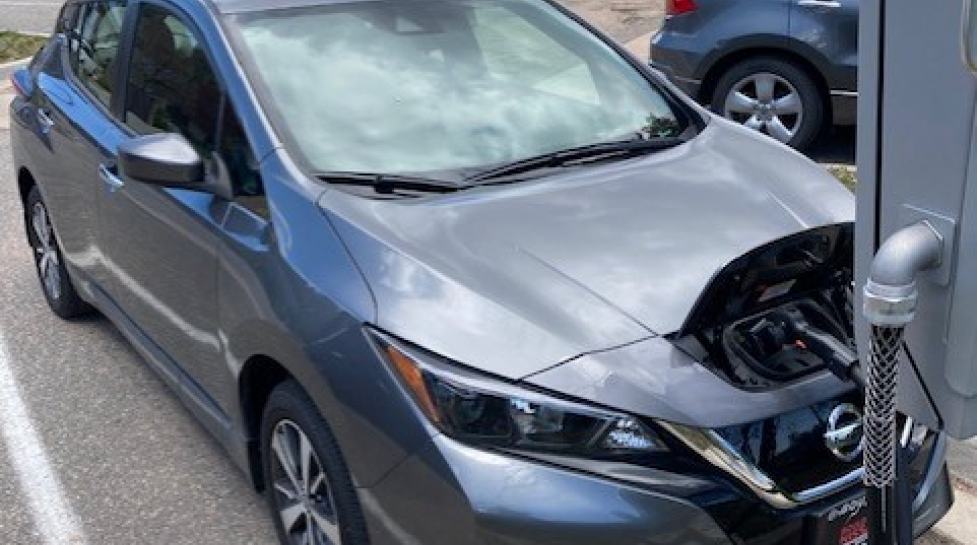Typically, electric vehicle chargers provide energy in one direction: from the energy grid or building to the car. This is no typical charger.
Vehicle-to-Building Project is Reducing Energy Costs
In July, IDC Smart Cities North America recognized a city pilot project in its annual Smart Cities awards. The project at the North Boulder Recreation Center explores how electric vehicles can reduce building energy costs.
Typically, electric vehicle chargers provide energy in one direction: from the energy grid or building to the car. Last year, the city and its partner, Fermata Energy, installed a charging station that enables two-way electricity: from the building to the car and from the car back to the building. This technology, called vehicle-to-building, can provide the city new ways to manage its energy load, and reduce energy costs.
The bidirectional charging system allows vehicle batteries to transfer energy from the battery back to the North Boulder Recreation Center in order to support the building’s electric loads and to reduce peak demand.
So far, the project has demonstrated promising results, reducing the recreation center’s electricity demand and energy costs. The city plans to publish data later this year.
According to IDC, Boulder’s project exemplifies a forward-thinking municipality that is effectively leveraging technology to offer new services and economic opportunities. Winners are invited to attend an award ceremony in October.
